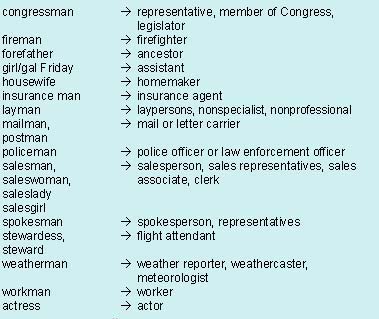Social Social monitor
‘God, they made a man out of you!’
Sakoon K. Chhabra
 AS a teacher of English in a boy’s college, when I asked the BA I students to write a letter to the editor of a newspaper complaining about the growing incidence of beggary on the city streets, 95 per cent of the students began the letter with the address followed by the salutation Dear Sir. Only the more perceptive, a mere 5 per cent, gave women any chance of a high-profile career by including/Ma’am. It seems the majority still imagines only men occupying such important chairs.
AS a teacher of English in a boy’s college, when I asked the BA I students to write a letter to the editor of a newspaper complaining about the growing incidence of beggary on the city streets, 95 per cent of the students began the letter with the address followed by the salutation Dear Sir. Only the more perceptive, a mere 5 per cent, gave women any chance of a high-profile career by including/Ma’am. It seems the majority still imagines only men occupying such important chairs.
Neil Armstrong has been lately given a thorough dressing down for conveniently overlooking half of humanity when he proclaimed on reaching the moon, "That’s one small step for a man, one giant leap for mankind."
This is now quoted as a historical moment when an important public figure threw linguistic sensitivity to wind or rather botched it in lunar dust!
This just brings to mind as to how certain language features, including its grammar and structure, help to reinforce the idea of male superiority and female inferiority. What is now termed "s*xist" language often points towards a faulty perception of male dominance and superiority in many fields of life and its manifestation through language. There are thinkers like Dale Spender whose book Man Made Language(1981) argues that language is not a neutral medium but one that carries many features through which patriarchy finds expression. So whether it is a candidate who is asked through written instructions to be careful about his identity card or a prospective manager who is always thought of to be a man or the State Department that wishes to call its museum as one depicting the Evolution of Man or the Literature teacher who describes Arthur Miller’s Death of a Salesman as the tragedy centering around the common man—all these instances and innumerable more go on to prove how s*xist our language is and how effortlessly it lays bare the thought that still discriminates. It is importantly to analyse this trend because while we may put several layers of political correctness on our formal and public discourse, gender discrimination when it has to, oozes out unseen from such unexpected quarters.
|
A POINTER TOWARDS USING POLITICALLY CORRECT, |
If we were to analyse our own languages and if we talk specifically of, say, Punjabi there exist innumerable examples that reflect this bias in language. The common everyday parlance, just like English, proves this but a look at our proverbs takes us a step further. Our idioms, proverbs and saying are a repository of folk wit and wisdom but much as we resent, also of our historical bias against women. Some such misogynous proverbs, sayings and idioms that portray women in a particularly derogatory light include:
Kudiyan, chidiyan, bakriyan-tinno jatan athriyan
(Women, sparrows and goats-the three are an unseemly tribe) Note how women are bundled together flippantly with animals and birds, the implicit comment on their worth.
Teevin kutt li kandh kutt li ik barabar hai (whether you bash up a wall or a woman, it amounts to the same) reflects the extremely derogatory position given to women and also the frequent incidence of physical abuse.
Utth ni kudiye dam kar charkha chhad te chakki far. (O woman, take a breather, leave the charkha get on with the chakki) The exploitation of labour done by women at home, which along with being unpaid is also devalued.
Some common instances of linguistic s*xism occur when while addressing a group or while thinking of a possible incumbent for a job male-as-a-norm is used, such as:Each candidate should include three copies of his resume with the application.
This kind of s*xism is found abundantly and quite glaringly in no lesser book but our very own Indian Constitution. Though our Constitution has given the provision ofpositive discrimination for the benefit of women, there are scores of articles, which, while talking of the powers of Governors, MPs, MLAs, Ministers, and Prime Minister etc. take on the generic pronoun he, which excludes all Indian women.
At other times there is an irrelevant reference to gender:
That woman MP is really assertive In India we still come across the convention lady doctor. There is also an irrelevant reference to the physical appearance of women. Conventions include giving descripttions of women in terms of age and appearance, while describing men in terms of ability and career accomplishments. Examples:
Aarti, the girl with long hair has just entered her first year of medical school.
Nafisa, an attractive 49-year-old physician and her husband Virendra, a pilot with the Indian Airways.
Language plays a part in s*xism though it is disputed whether certain language features cause s*xism or s*xism causes these language features. Linguistics and psychology students are aware of what is famously called the Whorf-Sapir Hypothesis, which invalidates the assumption that language is merely a set of symbols for the communication of our thoughts. The theory argues that thinking requires language and the characteristics of a particular language actually shape the specific manner in which users of a language think about things. In other words it says that the particular language use determines how people see the world. The hypothesis is controversial and some thinkers believe in the precedence of thinking over language rather than other way round as the Whorf-Wapir hypothesis suggests. However many critics see the relationship between language and perception as being circular or dialectical. We can say that thinking initially precedes language as a cause for its evolution, however language ultimately takes over and then fashions our thought.
To the cause of studying s*xism in language this view is appropriate because the present language structure can be ascribed to the patriarchal superiority that our society has held for a long time. However, the conscious effort to make our language gender neutral can be espoused more fervently by the logic that if we are not proactive and do the needful today language might strongly inject the prejudice that it carries with it and continue to affect our thinking.
Sexism projected through language is a political issue today. It is reflected through the language we choose to use. Many people speaking or writing English today wish to avoid using language, which supports biased attitude to a particular s*x, usually women. This consciousness is important because s*xist language is being increasingly regarded as a defect in writing. More importantly, language, just like it reflects the thought, also fashions it in turn. Therefore, not making it gender sensitive would be truly regressive. We have already ignored it long enough while they declared God a man.
Source: Tribune, Chandi garh












